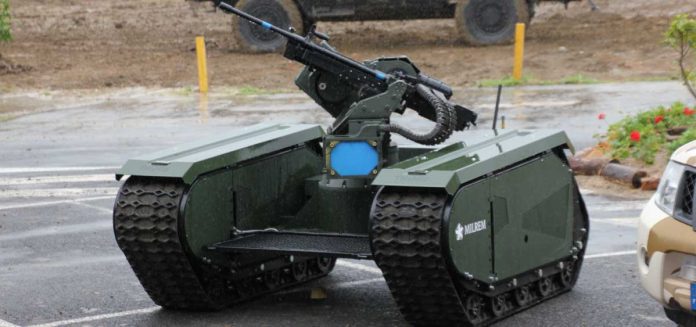More than 160 companies and organisations from 36 countries working with artificial intelligence (AI) technologies, including the founders of Tesla and Google DeepMind, have signed a pledge not to develop, make, sell or use lethal autonomous weapons.
The signing is the first of its kind, and has so far drawn 2,400 individuals from 90 countries, including SpaceX and Tesla chief Elon Musk, DeepMind founders Shane Legg, Mustafa Suleyman, and Demis Hassabis, Skype founder Jaan Tallinn, and a number of academic institutes, organisations and researchers.
The pledge was announced at the Joint Conference on Artificial Intelligence (IJCAI) in Stockholm, Sweden, yesterday (July 18) by the Future of Life Institute (FLI). Max Tegmark, president of the FLI, said AI leaders have moved “from talk to action” by implementing a policy politicians have failed to put into effect.
“AI has huge potential to help the world – if we stigmatise and prevent its abuse,” he said.
Lethal autonomous weapons systems (LAWS) are weaponised robots that can independently search and engage targets based on programmed constraints and descriptions. The final decision to use lethal force is left to an autonomous weapons system.
“AI weapons that autonomously decide to kill people are as disgusting and destabilising as bioweapons, and should be dealt with in the same way,” said Tegmark.
Concerns automated weapons will be easier to hack, and obtain on the black market, have also seen a wider call for a ban on LAWS. Twenty six countries have so far announced support for a ban, of the sort applied to biological, chemical and space weapons.
The next UN meeting on LAWS will be held in August. Signatories of the pledge hope lawmakers will be encouraged to develop an international agreement between countries.
The pledge states: “We, the undersigned, call upon governments and government leaders to create a future with strong international norms, regulations and laws against lethal autonomous weapons. … We ask that technology companies and organisations, as well as leaders, policymakers, and other individuals, join us in this pledge.”
Toby Walsh, professor of AI at the University of New South Wales in Australia, and an organiser of the pledge, said: “We cannot hand over the decision as to who lives and who dies to machines. They do not have the ethics to do so. I encourage you and your organisations to pledge to ensure that war does not become more terrible in this way.”
Ryan Gariepy, founder and chef technology officer of Clearpath Robotics and OTTO Motors, commented: “The proliferation of lethal autonomous weapon systems remains a clear and present danger to the citizens of every country in the world.
“No nation will be safe, no matter how powerful. We hope governments decide to invest time and effort into autonomous systems that make people healthier, safer, and more productive, instead of systems whose sole use is the deployment of lethal force.”

